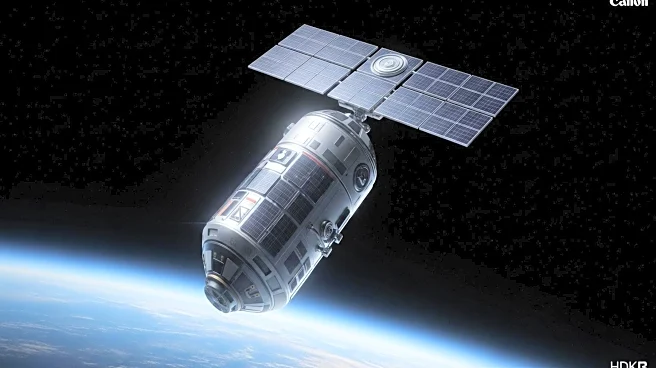What's Happening?
NASA's Cygnus XL spacecraft, carrying five tons of supplies to the International Space Station (ISS), encountered engine malfunctions, delaying its mission. The spacecraft, operated by Northrop Grumman, was launched aboard SpaceX's Falcon 9 rocket. As it approached the ISS, issues with its main engine caused trajectory deviations, preventing NASA astronaut Jonny Kim from capturing it with the station's robotic arm. NASA is exploring options to ensure successful cargo delivery, highlighting the complexities and risks of space missions.
Why It's Important?
The incident underscores the challenges of space logistics and the precision required in space operations. The delay in cargo delivery affects the astronauts' well-being and the continuation of scientific research aboard the ISS. It highlights the need for robust contingency plans and adaptive strategies in space missions. The situation also emphasizes the importance of international cooperation and coordination in space exploration, as the ISS relies on contributions from multiple countries.
What's Next?
NASA is actively working on solutions to rectify the situation and ensure the successful delivery of the cargo. The agency's technical teams are evaluating various recovery options, leveraging their expertise and resources. The incident offers valuable insights for future missions, informing practices and technologies to enhance reliability and safety. As NASA and its partners address the current challenges, the lessons learned will contribute to improving space logistics and international collaboration.
Beyond the Headlines
The incident highlights the human element in space operations, with astronauts like Jonny Kim playing a crucial role in adapting to unforeseen circumstances. It underscores the interconnectedness of international space efforts and the importance of collaboration in pushing the boundaries of space exploration. The situation raises questions about the future of space logistics and how NASA and its partners will leverage this experience to enhance safety and efficiency.









